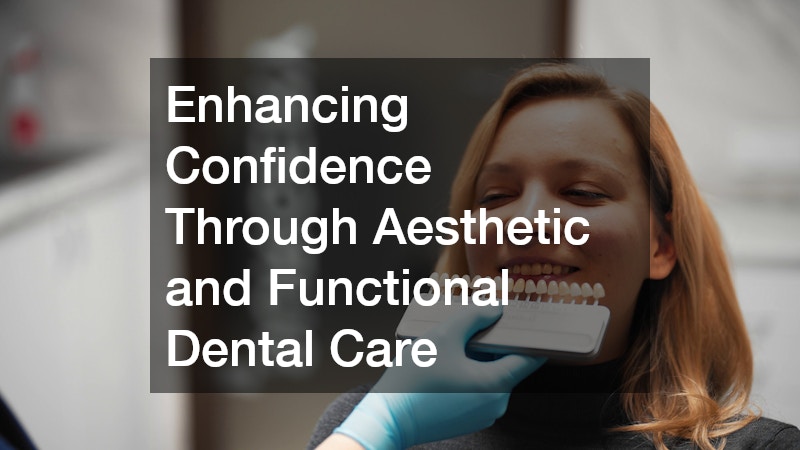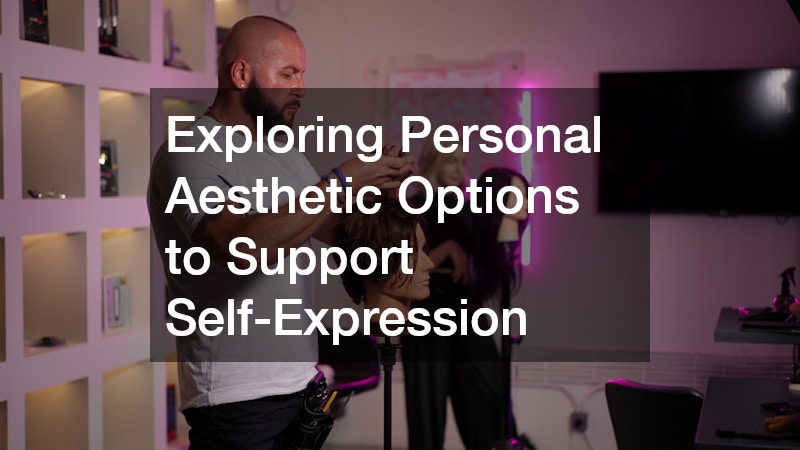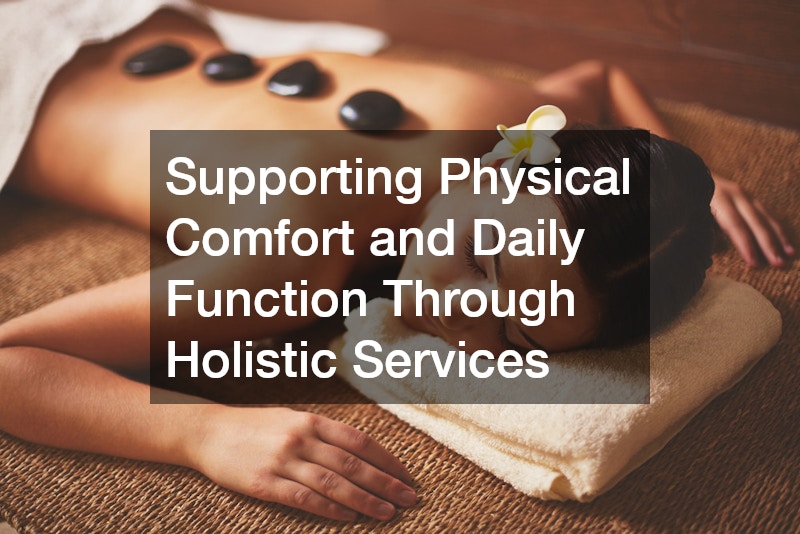In today’s world, conversations about health and personal well-being have expanded far beyond traditional medical care. People no longer look at wellness as a single habit or one-size-fits-all philosophy. Instead, they seek personalized ways to improve their bodies, minds, and long-term quality of life. This shift has created an environment where individuals feel empowered to make choices that fit their lifestyles while adopting practices that help them live with more balance, vitality, and confidence. A modern approach to health recognizes that wellness is multi-dimensional, holistic, and constantly evolving with new research, new technology, and a better understanding of what humans need to thrive. Whether the focus is emotional resilience, physical strength, long-term disease prevention, or improved appearance, more people than ever are looking for strategies that bring health into everyday life in practical, sustainable ways.
Below is a comprehensive look at how individuals can think about wellness through accessible, forward-thinking perspectives. Each section explores one aspect of personal well-being, weaving together lifestyle habits, service options, and long-term planning that support a stronger mind-body connection. By recognizing that every person’s wellness journey is unique, this guide offers a framework that encourages thoughtful decision-making, self-advocacy, and meaningful personal transformation.
Prioritizing Preventive Wellness for Long-Term Health
A foundational part of any modern approach to health is understanding that prevention offers far more benefits than reacting to problems after they arise. Preventive wellness focuses on small, consistent habits that protect the body from illness, reduce the risk of chronic disease, and ensure that individuals feel their best throughout every stage of life. Instead of waiting for symptoms to disrupt daily routines, people are increasingly choosing proactive strategies that enhance vitality and keep stress levels manageable. This shift reflects a broader cultural recognition that taking care of the body is not an occasional task but a lifelong commitment that supports emotional, physical, and mental balance.
Preventive wellness includes practices such as regular medical checkups, annual vision and hearing screenings, labwork evaluations, and lifestyle assessments that help uncover subtle shifts in the body. Many individuals now track their daily steps, sleep quality, nutrition, and heart rate variability to identify patterns that can reveal early signs of imbalance. These tools allow people to take action far sooner than traditional models would have encouraged in the past. A modern approach to health empowers individuals to recognize behaviors and conditions that influence long-term wellness, such as inconsistent sleep, unmanaged stress, extended periods of inactivity, or poor nutrition.
Beyond individual habits, prevention also requires environmental awareness. People are increasingly paying attention to workplace ergonomics, air quality, water intake, and daily movement patterns—all factors that influence how the body functions. Another part of prevention involves strengthening the immune system through nutrient-rich foods, regular exercise, and consistent hydration. Preventive care is not about perfection; it’s about cultivating a lifestyle that reduces the likelihood of illness and maintains the body’s stability over time.
The emotional aspect of preventive wellness is equally important. A modern approach to health includes mindfulness practices, self-awareness exercises, and stress-management techniques that protect mental well-being. Chronic stress can affect cardiovascular health, digestion, sleep patterns, and emotional stability. By integrating preventive habits—such as meditation, deep breathing, nature exposure, or journaling—people can anchor themselves more effectively during challenging moments.
Preventive wellness remains a cornerstone because it sets the stage for long-term resilience. Individuals who invest in their well-being proactively often experience fewer physical complications later in life, enjoy higher energy levels, and maintain a clearer sense of emotional balance. This long-term perspective is central to the modern approach to health, illustrating how intentional habits today can dramatically improve tomorrow’s outcomes.
Enhancing Confidence Through Aesthetic and Functional Dental Care
When exploring a modern approach to health, one of the most frequently overlooked areas is dental wellness. Aesthetic and functional dental care contribute far beyond surface-level appearance—they directly influence confidence, social comfort, overall health, and quality of life. Today’s dental services combine advanced technology, preventative strategies, and cosmetic enhancements that allow individuals to achieve a naturally healthy and attractive smile.
One of the most impactful services in this area is cosmetic dentistry. This specialty focuses on improving the appearance, symmetry, and harmony of the teeth, helping individuals feel more confident in social and professional settings. Cosmetic services may include veneers, bonding, contouring, reshaping, or alignment options that address stains, chips, gaps, or irregularities. In the past, many people dismissed cosmetic procedures as unnecessary, but modern dental care recognizes how deeply a person’s smile affects self-esteem and long-term mental well-being. A modern approach to health acknowledges that feeling confident in one’s appearance contributes to overall life satisfaction.
Brightening the smile through tooth whitening is another widely embraced option, especially for those who want fast, noticeable improvements. Professional whitening treatments can restore vibrancy lost through coffee, tea, aging, or environmental factors. These enhancements are not solely about appearance—they can motivate individuals to maintain better oral hygiene habits, boosting overall dental health.
The broader connection between oral wellness and systemic health is well-documented. Poor gum health has been linked to heart disease, diabetes complications, inflammation, and digestive issues. Addressing functional concerns early reduces the risk of long-term complications, making dental care an essential part of preventive health. A modern approach to health encourages individuals to integrate regular dental checkups, cleanings, and X-rays into their overall wellness planning.
Furthermore, dental wellness plays a foundational role in emotional wellness. Individuals who feel self-conscious about their smile may avoid social interactions, hesitate in job interviews, or feel less expressive in daily life. When people take steps to enhance their dental appearance and oral health, they often see improvements in mood, communication, and confidence. This connection underscores why modern wellness must include a broader understanding of what health truly means—physical comfort, functional strength, and emotional well-being working together.
Exploring Personal Aesthetic Options to Support Self-Expression
In recent years, personal aesthetics has become an important dimension of the modern approach to health, reflecting the belief that wellness includes how individuals feel about their outward appearance. Enhancing physical appearance can significantly boost confidence, mental clarity, and overall life satisfaction. Personal aesthetics is not merely about vanity; it plays an influential role in self-identity and emotional well-being.
For many individuals, exploring options like human hair wigs offers a path to restored confidence during moments of change. Whether dealing with hair loss, personal preference, or a desire for styling flexibility, high-quality wigs allow people to present themselves in a way that aligns with their identity. These choices contribute to emotional comfort and self-esteem, especially during periods marked by medical treatments, hormonal shifts, or personal reinvention. A modern approach to health acknowledges that appearance can influence daily interactions, relationships, and professional opportunities.
Another aesthetic service with meaningful health implications is eyelid lifts. In addition to cosmetic benefits, these lifts can improve vision when sagging skin restricts the upper field of sight. By restoring youthful contours and eliminating heavy folds, individuals often experience improved facial symmetry and a more refreshed appearance. These changes can support emotional well-being by helping individuals feel energized and more aligned with their inner sense of self.
Cosmetic enhancements continue to evolve with new technology that emphasizes subtle, natural-looking results. Today’s wellness perspective recognizes that individuals should feel empowered to explore aesthetic options that support their confidence and self-expression. Whether someone pursues a cosmetic procedure or chooses simple at-home skincare routines, the underlying goal is the same: feeling like the best version of oneself. In this sense, personal aesthetics play a legitimate role within a modern approach to health, ensuring that emotional and physical well-being remain interconnected.
Supporting Physical Comfort and Daily Function Through Holistic Services
Physical comfort is essential to a fulfilling life, and it plays a major role in how people implement a modern approach to health. Holistic services are increasingly recognized for their ability to support mobility, pain management, energy levels, and stress reduction. These services go beyond traditional medicine by providing targeted, non-invasive strategies that enhance daily functioning in meaningful ways.
For instance, many individuals turn to a local massage therapist to address muscular tension, chronic pain, and stress. Massage promotes relaxation, improves circulation, and helps the body recover after physical strain or long periods of inactivity. Modern lifestyles often involve hours of sitting, repetitive motions, or stressful environments, all of which contribute to stiffness and discomfort. By integrating massage into a regular wellness routine, individuals can reduce physical tension while supporting mental clarity and emotional balance.
Another holistic option within this wellness framework is visiting a local chiropractor. Chiropractic care supports spinal alignment, joint mobility, and nervous system function. For individuals experiencing back pain, neck pain, headaches, or posture issues, chiropractic adjustments can provide relief and restore balance to the musculoskeletal system. The philosophy of chiropractic care aligns closely with the principles of a modern approach to health, emphasizing natural healing, preventive care, and long-term physical stability.
Hearing health is also a key component of physical function. Many individuals rely on hearing aid services to enhance communication and daily engagement. When hearing loss goes unaddressed, it can lead to social withdrawal, cognitive strain, and increased safety risks. Modern hearing technology is discreet, highly advanced, and designed to integrate seamlessly with everyday routines. By improving auditory clarity, individuals can participate more fully in relationships, work, and leisure activities.
Together, these holistic services demonstrate how physical comfort supports long-term well-being. They help individuals maintain mobility, reduce stress, and improve overall body function—core elements of the modern approach to health, where the goal is not just to treat problems but to improve quality of life.
Boosting Personal Confidence Through Professional Appearance Services
Confidence plays a significant role in overall wellness. A modern approach to health recognizes that feeling secure in one’s appearance can impact social interactions, career opportunities, relationships, and self-esteem. Many individuals turn to professional services that elevate their natural features and help them feel more comfortable in their skin.
One popular option is botox injections, which offer a minimally invasive way to soften fine lines and maintain a refreshed appearance. Many people choose Botox for subtle improvements that help them feel more youthful without undergoing surgery. When performed by trained professionals, Botox can provide natural-looking results that enhance facial symmetry and support emotional well-being.
Another vital option is skin care services. Healthy skin supports both physical comfort and emotional confidence. Skin care professionals can address concerns such as dryness, acne, sensitivity, premature aging, discoloration, or uneven texture. Regular skin treatments promote increased hydration, improved tone, and long-term skin resilience. These services support the broader goals of a modern approach to health by helping individuals maintain a strong, healthy skin barrier that contributes to overall wellness.
Appearance-related services do not exist in isolation; they support deeper emotional benefits. When individuals feel good about their appearance, they often experience improved mental health, increased motivation, and a more positive outlook. These shifts play a crucial role in developing healthy habits, building social confidence, and feeling comfortable in public or professional environments. This integration of aesthetic care and emotional well-being reflects the holistic nature of the modern approach to health, where confidence is recognized as a legitimate and essential part of personal wellness.
Managing Weight and Metabolism Through Guided Support
Weight management remains one of the most common wellness concerns, and many individuals seek reliable, science-backed guidance. A modern approach to health places emphasis on personalized strategies rather than one-size-fits-all diets. Modern research shows that metabolism, hormones, sleep patterns, stress, and nutritional deficiencies all play major roles in weight fluctuation. As a result, people are increasingly turning to structured support that recognizes these multifaceted influences.
Services such as medical weight loss services provide a comprehensive approach that includes medical evaluation, nutritional planning, behavioral strategies, and ongoing monitoring. These programs help individuals identify metabolic barriers, understand nutrient needs, and overcome challenges that general diets often overlook. Unlike traditional weight-loss methods that rely on restrictive or unsustainable habits, medical weight loss emphasizes long-term success and improved overall health.
This scientific, personalized strategy aligns closely with the modern approach to health, which prioritizes individualized care and realistic planning. Weight management often involves more than achieving a desired appearance—it affects cardiovascular health, mobility, energy levels, and long-term disease risk. By working with trained professionals, individuals can pursue weight loss in a way that protects their health, supports their metabolic needs, and improves long-term wellness.
Emotional well-being is also an important factor. Many people have long histories of frustration with weight loss, leading to stress, low self-esteem, or feelings of failure. Professional support helps replace these experiences with structured guidance, encouragement, and evidence-based solutions. When individuals feel supported and informed, they are more likely to develop sustainable habits that align with their broader wellness goals.
A modern approach to health views weight as one component of well-being rather than a defining characteristic. With the right support, individuals can rebuild their confidence, strengthen their bodies, and create healthier relationships with food, movement, and self-care.



